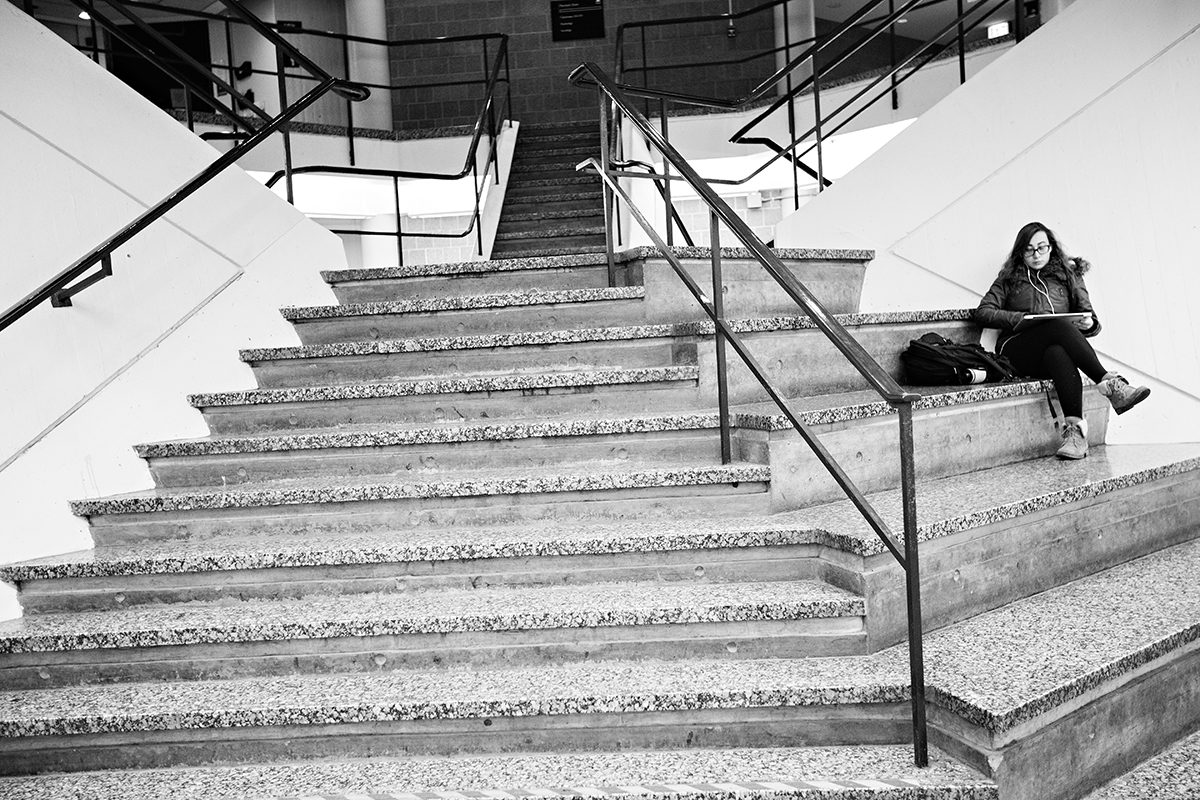
Steep Steps
The first chapter titled "steep steps" drew upon the metaphor of disabled academia's long road to ascend the ivory towers of mainstream academia (p. 44). For example, many universities provided wellness programs, which could be construed as attempts to reduce the prevalence of mental disabilities on campus. Historically, universities reserved disabled people as an object of study in higher education and categorized them as a marginalized group to be kept them out of universities and away from accessing resources and privileges. Due to the high costs of accommodations beyond legal obligation, universities felt pressure to distance themselves from disabled groups in academia. For example, Dolmage shared a disabled student's experience of "architectures of ableism", where her teacher refused to make an inclusive classroom, saying "but there are no disabled students in my class" (p. 42). He explained that her teacher's excuse represented a fear of the presence of the disabled student and his desire to eradicate and exclude the disabled student.
Financial Ableism
As Dolmage provided the example above of architectural ableism, I would like to add another idea of financial ableism, which describes the refusal to provide accommodations due to financial burdens. Dolmage pointed out that disabled women have a higher risk of sexual assault than non-disabled women. I argue that not only disabled women, but also disabled men have an increased risk for sexual assault. Due to their personal conditions, disabled individuals likely experience additional barriers to seeking help, including limited physical mobility to escape or limited emergency communication access (National Domestic Violence Hotline, n.d.). Many universities' emergency response systems respond to voices only, and not text, which threatens the safety of Deaf victims (Yabe, 2016).
In my personal experience, when I first came to the University of Illinois at Chicago (UIC), I noticed that there were emergency phone services available, but no emergency texting services. I asked the campus police why they did not have emergency texting services, and they responded, "We have never had emergency reports from Deaf callers. Texting services are slower than voice services." I could have argued that texting was not just for Deaf people, and that the Federal Communication Commission recognized that there are emergency situations where a phone call is not safe, such as domestic violence situations or a campus shooter. But, I could not argue these facts because there was also another problem: the university did not have the money for adding emergency texting services. How could they know that it would be worth it to add emergency texting services for a very small Deaf population?
This was an example of financial ableism. To remove this barrier, I decided to measure UIC students, faculty, and staff's willingness to pay for a campus safety app that included emergency texting. I found that a majority of UIC members were interested in this type of campus safety app. I shared these findings with campus police, and UIC launched the app in Fall 2016 (Yabe, 2017).
Yet, disabled students at UIC continue to encounter other instances of architectural and financial ableism, such as a lack of accessible space for testing accommodations, socializing, and taking part in cultural programming, as well as a reduction in the budget for disability specialists. Even though the Student Advisory Board of the Chancellor's Committee on the Status of Persons with Disabilities began advocacy efforts on this issue two years ago, which culminated in delivering a petition signed by over 1300 individuals, the university administration has been reluctant to act on any of the proposed recommendations (Student Advisory Board, personal communication, February 18, 2018).
